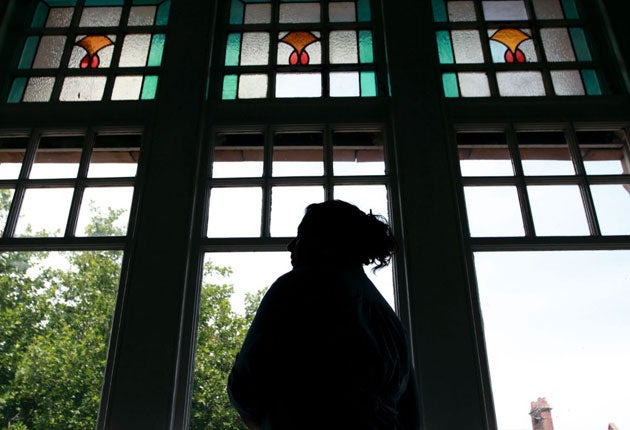Forced marriage: Summer is the season when many teens have every reason to be fearful
July is typically the busiest month for forced weddings

A small corner of the Foreign & Commonwealth Office’s London headquarters will be a tense place this week. The Forced Marriage Unit, whose small team of seven is based at the department’s Whitehall offices, is now in the midst of its most stressful period: the summer holidays.
July is typically its busiest month as families seize the opportunity to take their daughters (and sons) abroad to get married, free from the restrictions presented by the school term. Last year the unit dealt with 147 cases in July, the highest monthly tally in an annual total of more than 1,200.
The joint Home Office and Foreign Office operation is responsible for organising the response to any British victim of forced marriage needing assistance in the UK or abroad. It consists of five case workers and two unit heads, Chaz Akoshile and Lucy Monaghan.
Speaking in their offices, Ms Monaghan said the increase in calls was already noticeable. “I’d say for the past two weeks there’s been a sudden spike in calls and it’s where people are starting to mention that they’re going on holiday this summer.”
She added: “It will be a nervous few weeks for the unit as we have a number of cases where teenagers and young adults are going overseas.
“Unfortunately it is likely that come September more cases will come to light as teachers notice that students aren’t returning to school or university.”
A few weeks ago Ms Monaghan took a call from a teacher at a sixth form college, in a case bearing the hallmarks of many others that her team has dealt with in the past few weeks. “The teacher explained that a 16-year-old student mentioned to them he was going on holiday to visit his mum’s family over the holidays, and had overheard discussion of a wedding taking place and what a big day it will be for him,” she said. “He wasn’t sure if the wedding is intended for him or not, but when he asked his parents about the wedding, they denied any wedding was taking place.”
The teenager had reason to be fearful; his cousin had been forced to marry during the same holiday two years ago, and is just one year older than him. “The student was in the room with the teacher and I was able to chat to him on the phone. He was keen to still travel on the holiday as he goes every few years and looks forward to seeing family, but was concerned he might be forced to marry.
“He was nervous and didn’t want his parents to get in trouble, especially as nothing yet has happened. He was also a bit embarrassed and regularly said that boys are not forced into marriage.”
Ms Monaghan explained Forced Marriage Protection Orders to the student. These can be taken out against family members to ensure they do not try and go ahead with a marriage.
He was initially wary, but after further conversation an order was taken out on the father to ensure his son returns on an agreed date and is not forced into marriage.
The father, who is not going on the trip, has also handed in his passport temporarily. The family leave for their holiday later this month.
The unit’s sparse office sits high up in the FCO’s headquarters in a quiet corner behind the consular assistance team. A handful of desks are surrounded by maps of the Asian subcontinent and a case work noticeboard.
A small chink of levity is provided by a selection of bloopers from call-ins pinned to the wall (“Is this the secret marriage unit?” and “You’re like another mum”).
Judging from the scale of the operation, it would struggle without the support of the specialist charities with which it teams up. One of these, Southall Black Sisters, has supported more than 80 of its repatriations over the past year – meeting frightened returnees at the airport when they arrive back in Britain, having been saved from a marriage, and helping them settle safely into a new life in the UK.
The unit also does work speaking in schools and helping the police and other services to spot the crime and help victims. Ms Monaghan believes more needs to be done to make sure front-line staff know how to deal with the issue. “I think we do need more awareness from professionals – teachers, social workers, police – as to what a forced marriage is and what the risk factors are,” she said.
“But also raising awareness among children and teenagers because we do see that sometimes the perpetrator of these crimes is a British-born older brother who’s actually got a good standing in the family and is putting that pressure on.
“Ultimately I think it’s going to be about changing the views of young people in this country, so that all the way through, the difference between arranged and forced marriage is clear.”